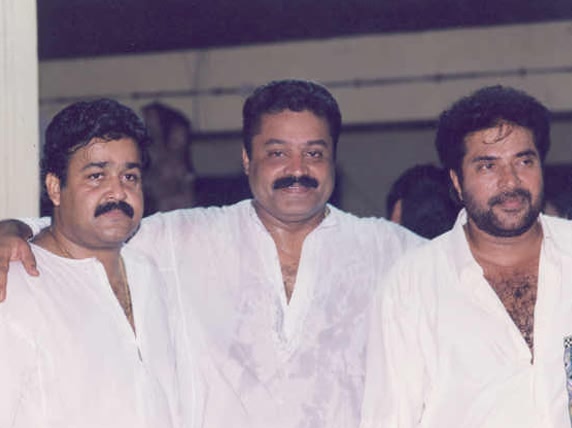History of Malayalam Cinema
The first Malayalam film, titled Vigathakumaran was released in 1928. It was a silent film ,produced and directed by a businessman, J. C. Daniel who had no prior film experience. The second film Marthanda Varma based on a novel by C. V. Raman Pillai, was produced in 1933. But it was never released due to some legal disputes.
Balan released in 1938 was the first talkie in Malayalam. Its screenplay and songs were written by Muthukulam Raghavan Pillai and directed by S Nottani. It was produced at Chennai (then Madras) in the neighbouring state of Tamilnadu. Malayalam films continued to be made almost exclusively by Tamil producers till 1947 when the first major film studio, Udaya was established in Kerala.
from 1951 to 1960 Malayalam Cinema has always taken its themes from very relevant social issues and has been intervened with the fields of literature, drama and politics from the very beginning. Jeevithanauka(1951) was a musical drama which spoke about the ego clashes in a joint family, the norm of the day. This movie was widely accepted and popular and can be mentioned as the first "Super Hit" seen by Malayalam Cinema. This success of the movie turned out to be sweet and sour at the same time. Although this success accelerated malayalam movie making, films that were produced after Jeevithanouka took up after this "success formula", hampering true creativity for a very long time.
In 1954, Neelakkuyil captured national interest by winning the President's silver medal. Scripted by the well-known Malayalam novelist Uroob and directed by P. Bhaskaran and Ramu Kariat, it is often considered as the first authentic Malayali film. Another notable production was Newspaper Boy (1955) which had elements of Italian neorealism.This film is noteworthy as the hard work of a group of amateur college students and spoke of the story of a printing press employee and his family hit by extreme poverty. Chemmeen (1965), directed by Ramu Kariat and based on a story by Thakazhi Sivasankara Pillai went on to become immensely popular and won the national award. It had music by Salil Chowdhury, songs by Manna Dey and editing by Hrishikesh Mukherjee. The first colour film in Malayalam was Kandam Becha Coat.
The 70s saw the emergence of a new wave of cinema in Malayalam. The growth of film society movement in Kerala introduced the works of the French and Italian New Wave directors to the discerning Malayali film enthusiasts. Adoor Gopalakrishnan's first film Swayamvaram (1972) brought Malayalam cinema to the International film arena. In 1973 M. T. Vasudevan Nair who was by then recognized as an important author in Malayalam, directed his first film Nirmalyam, which won the President's Gold Medal for the best film. G. Aravindan followed Adoor's lead with his Uttarayanam in 1974.K. P. Kumaran's 'Adhithi' (1974) was another film which was acclaimed by the critics. John Abraham, K. R. Mohanan, K. G. George, and G. S. Panikkar were products of the Pune Film Institute who made significant contributions.
'List of Malayalam films from 1976 to 1980
During the late 70s, a good propotion of the youth started seeing Malayalam Cinema as a medium of expression and thought of it as a tool to revitalize the society. A noted Director, Aravindan was famous in Kerala as a cartoonist before he started making films. His important movies include Kanchana Seeta (1977), Thampu (1978), Kummatty (1979), Chidambaram (1985), Oridathu (1986), and Vasthuhara (1990).
Adoor Gopalakrishnan made Elipathayam in 1981. This movie was widely acclaimed and won the British Film Institute award. His other movies include Mukhamukham (1984), Anantharam (1987) Mathilukal (1989), Vidheyan (1994), Kathapurushan (1995), and Nizhalkkuthu (2003). Padmarajan made his early works in this period including the movie Koodevide? (1983)
P. A. Backer and Bharathan are other names worth mentioning




